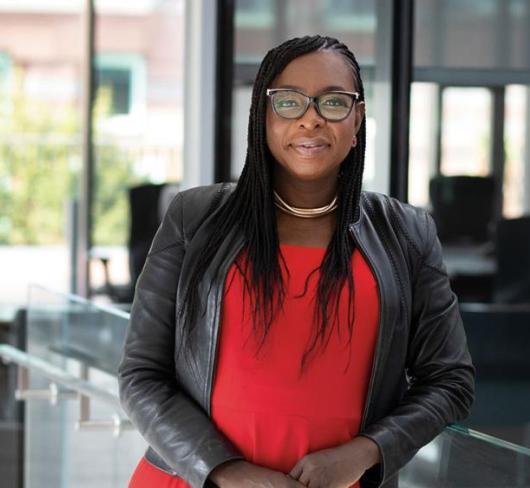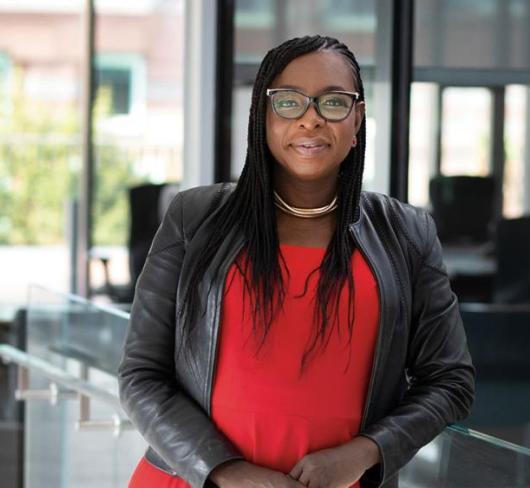Making a Difference: Connecting to Colleagues and Contributing to Our Union (Equity and Women's Services)
"Teaching is . . . fundamentally a decision-making and political process that can forever change the lives of all those who experience it, be they children, educators, or parents.”1
What motivates a person to do equity and social justice work? Some ETFO members are motivated by a general desire to make a difference and others by learning about their colleagues’ personal experiences of exclusion or isolation. As we develop connections with one another we must also be willing to learn from colleagues with dissimilar experiences and backgrounds. This sometimes means setting aside our own agendas and mindfully finding ways to create a shared vision, one that connects us to the larger social world.
Many ETFO members are committed to advocacy and activism in their work for social justice and equity. With over 20 provincial standing committees, there are many ways in which members can support one another to understand key issues and work for improvements. Five ETFO members share aspects of their motivation and commitment to making a difference by volunteering to serve on the ETFO Human Rights Committee.
Lorna Evans Afolabi, Ottawa-Carleton Teacher Local
“I am an Early French Immersion teacher. Over the past two years I have enjoyed teaching the grade 2 social studies curriculum. There are so many natural links to share my passion for global education and character development."
“Outside my classroom door is a small red poster that states, “What is popular is not always right. What is right is not always popular.” Throughout the year I display a variety of posters and other items related to social justice and equity issues. My goal is to spark conversations among students, staff, and members of my school community. I find that when we talk and listen to one another we can start to exchange ideas, especially when it relates to something outside of our comfort zones."
Alice Assor-Chandler, Halton Teacher Local
“I often think of human rights as a common thread that connects us to others. Through this connection we learn how to discover, strategize, and help one another improve how we live our lives. Networking is key to making important changes and working on the Human Rights Committee helps to create a ripple effect by giving me a chance to offer support to those in need and to educate colleagues about injustices."
“Since adolescence I have always volunteered to help out, whether with children in need at a university settlement, volunteering overseas, or being part of a team as co-writer for the Global Education Curriculum Inquiry project. I believe that when we connect to one another through our hearts and our minds, anything is possible.”
Rochelle Coombs-Paulus, Elementary Teachers of Toronto
“Ever since high school, I have enjoyed learning about and advocating for people’s rights. As president of the Amnesty International group in a small community in southwestern Ontario I learned about local and global connections and about the inhumane treatment of people – women, men, and children regardless of their race, ethnicity, gender, social class, culture, and history."
“I have a keen interest in encouraging people from underrepresented groups to join the profession. Last year, I helped to sponsor the community group Sistering – A Woman’s Place in their work assisting marginalized and low-income women in Toronto. My passion for equity issues has continued to grow as I work collectively with colleagues.”
Michael Thomas, Thames Valley Teacher Local
“My desire to serve on the Human Rights Committee is aligned to my belief that as educators we have a strong moral obligation to address the injustices that exist today. In our teaching we quite naturally address issues of intolerance, injustice, and discrimination as part of our desire to foster and to promote social equity. As a committee, we have an avenue to help our colleagues address issues by building awareness of the barriers that members face."
“My participation provincially has enabled me to develop my own understanding about human rights and to find ways to support colleagues to address their right to equal treatment within our organization and within our profession.”
Karen Chow, Hastings and Prince Edward Occasional Teacher Local
“As an ETFO member, I participated in workshops and conferences and decided to become more involved at the provincial level. As a participant in a mentorship program, I was given the opportunity to sit in on a standing committee meeting. The Human Rights Committee was assigned to me. I was struck by the diversity of the work the committee was doing. Members reviewed and supported the development of workshop materials, examined current practices of the organization through a human rights lens, and made recommendations to the executive. The committee also developed resolutions for the annual meeting that could improve equity and human rights for all members."
“I have served on the committee for four years and am beyond proud of the work we do. I have learned an immense amount about barriers that I never had to face myself, but are everyday occurrences for some of our members. I love being part of a collective that continues to look at ways to eliminate barriers, and work for equity for all.”
Note
1. Sonia Nieto, Foreword to Teaching and Learning in a Diverse World, 3rd ed., P. G. Ramsey, New York: Teachers College Press, 2004, p. xiii.

